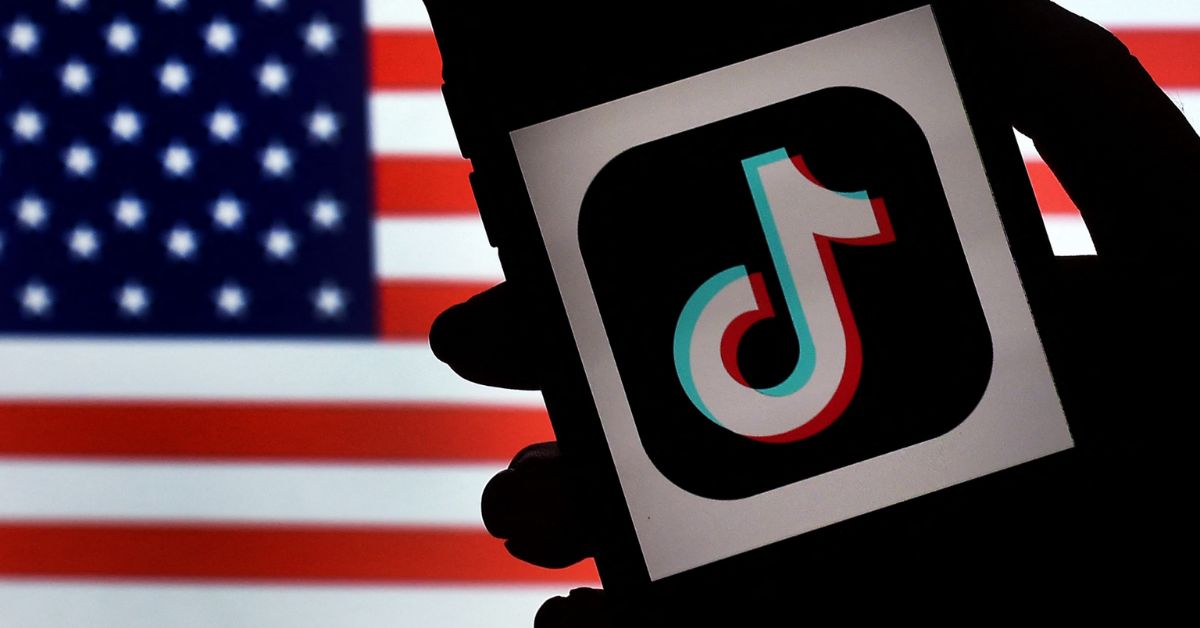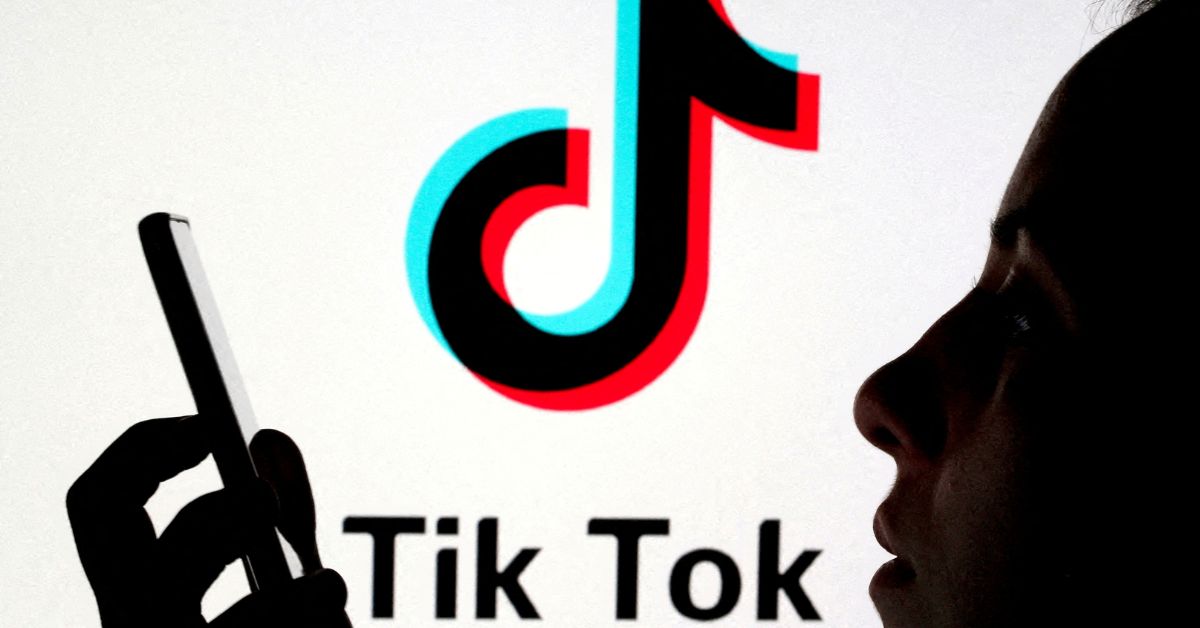On Friday, Montana became the first US state to approve legislation forbidding TikTok from being used on any personal device, sending a bill to Gov. Greg Gianforte outlawing TikTok from functioning within state limits and prohibiting app shops from promoting TikTok for download.
Some federal MPs have asked for a nationwide ban on TikTok. This legislation represents the most significant action yet taken by a state government to restrict TikTok for claimed security concerns.
The House of Representatives in Montana passed SB419 by a vote of 54 to 43. The bill would go into effect in January if signed by Gianforte. However, the law may soon be challenged in court.
TikTok is singled out by name in the legislation, which proposes fines of up to $10,000 per day for each infraction. Any app store found to violate the law would be subject to the same sanctions. Meanwhile, individual TikTok users will face no repercussions.
Brooke Stroke, a spokeswoman for Gianforte, said, “The governor will carefully consider any bill the legislature sends to his desk.” The Montana University System followed Gianforte’s January 2019 request to prohibit TikTok from all university-owned devices.
TikTok suggested possible legal action to challenge the bill in a statement.
“The bill’s champions have admitted that they have no feasible plan for operationalizing this attempt to censor American voices and that the courts will decide the bill’s constitutionality,” said TikTok spokesperson Brooke Oberwetter. “We will continue to fight for TikTok users and creators in Montana whose livelihoods and First Amendment rights are threatened by this egregious government overreach.”
The United States is only one of many countries whose governments have utilized their power over government-issued smartphones, computers, and WiFi networks to block access to the video-sharing app TikTok. However, this does not apply to personal electronics.

US officials have voiced concerns that the Chinese government may be able to obtain user data for TikTok through its ties to TikTok’s parent company, ByteDance, and utilize it for intelligence or propaganda purposes. The Chinese government has not been shown to have hacked into TikTok or exploited user data to influence users in the United States. Director of the FBI Christopher Wray has testified before Congress that “we’re not sure that we would see many of the outward signs of it happening if it was happening.”
TikTok has maintained it can solve national security concerns by constructing a “firewall” around US user data as part of a program it calls Project Texas. At the same time, the US government has urged for TikTok to be spun off from its Chinese owners.
Please see a list of further recent articles below. If you want to learn more, just read the posts:
- Montana Close to Becoming 1st State to Completely Ban TikTok
- Biden Administration Insists TikTok Chinese Owners Split Off Their Part or Face Us Ban
TikTok’s detractors seem unfazed by the strategy, though. The House vote in Montana on Friday demonstrated the widespread support for limiting TikTok even on non-government devices, joining the ranks of the more than half of US states that have already taken action to do so.
The fate of legislation in Montana, however, is unclear. NetChoice, of which TikTok is a member, claimed that SB419 breaches the US constitutional ban on “bills of attainder,” or laws that seek to penalize a person without a trial.
“This move from the Montana legislature sets a dangerous precedent that the government can try to ban any business it doesn’t like without clear evidence of wrongdoing,” said Carl Szabo, NetChoice’s vice president and general counsel. “The US Constitution forbids lawmakers from passing laws to criminalize a specific individual or business. Gov. Greg Gianforte should veto this unconstitutional law.”
I just spoke with @GovGianforte office regarding the TikTok ban legislation that just passed—
“The governor will carefully consider any bill the legislature sends to his desk. We will keep you apprised of the bill’s status once the governor acts on it.”#Mtpol
— Bradley Warren (@bradmwarren) April 14, 2023
Design it For Us, a group of young activists working to reform platform regulation, expressed disappointment that the law did not consider the views of internet natives.
“We believe that social media can be good for young people if designed for us,” said co-chairs Zamaan Qureshi and Emma Lembke. “Bans like this one forgo a real opportunity to proactively address kids’ safety and privacy concerns on these platforms.”
On Friday, an organization representing app developers expressed concern that the bill will push governments to legislate app by app, resulting in a patchwork of laws that would “weigh heavily on small app companies.”
The App Association president Morgan Reed noted, “While it might begin with TikTok, it clearly won’t end there,” stated that the company provides more than half of the organization’s funding.
According to civil society organizations, many Montanans may lose their right to free speech and information if SB419 becomes law. This week, the American Civil Liberties Union (ACLU) spearheaded a coalition letter to state lawmakers arguing that restrictions on free expression must meet a high constitutional hurdle.
Other recent articles are provided below. For further information, please read the posts:
- How to Use TikTok for Improving Your Small Businesses?
- Is Tiktok Getting Banned in the U.S. 2023? What the Real Reason?
“SB 419 is censorship — it would unjustly cut Montanans off from a platform where they speak out and exchange ideas daily. It would set an alarming precedent for excessive government control over how Montanans use the internet,” the letter read.
First Amendment scholar and associate professor at Syracuse University Lynn Greenky said the language in the legislation is a “red flag” that should lead to closer constitutional review because of its reference to the prevalence of “dangerous content” and “dangerous challenges” on TikTok.
Remember when Twitter banned people posting Nazi Memes, racist rhetoric and hate speech, and conservatives had a hissy fit?
What do they think about Republicans in Montana voting to ban an entire social media platform called TikTok?
Today The Montana House of Representatives… pic.twitter.com/YsXHSHOtGC
— Brian Krassenstein (@krassenstein) April 15, 2023
“Only in exceptional circumstances will content-based restrictions be constitutionally permissible under the First Amendment,” Greenky said. “Certainly, the Montana government has a compelling state interest in protecting its citizens’ health, welfare, and privacy, but the statute is so vague that it is virtually unenforceable. A vague statute is, by definition, not narrowly tailored, and as such, it will wither under First Amendment scrutiny.”
